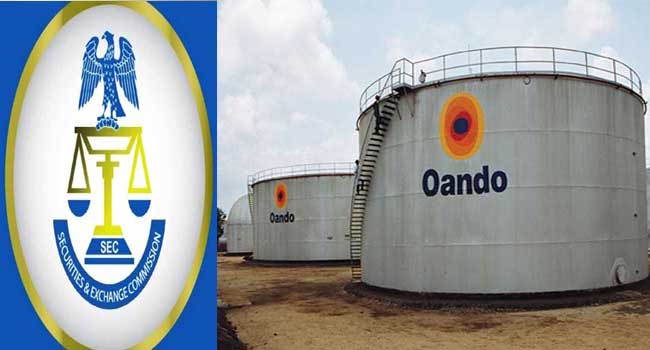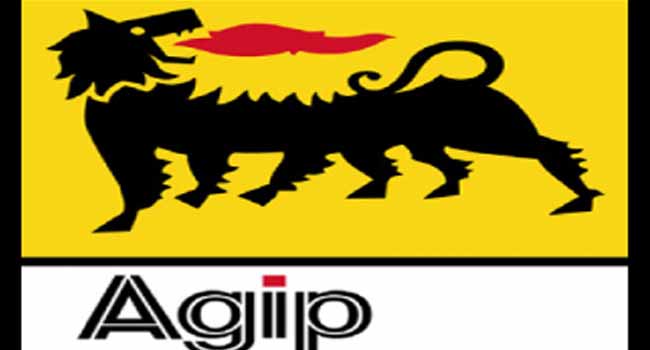Oando Plc has responded to the findings by the Security and Exchange Commission (SEC) that the company’s audited financial statements contained misstatements.
In a statement on Tuesday, Oando accused SEC of illegality, adding that it had secured a court order restraining the regulator and the Nigerian Stock Exchange from enforcing the technical suspension of its shares.
The Securities and Exchange Commission had in a letter dated October 17, 2017, and addressed to the Group Chief Executive Officer of Oando, Mr Wale Tinubu, accused the company of gross abuse of corporate governance and financial mismanagement.
Among other things, the regulator said the company’s audited financial statements for 2013 and 2014 contained misstatements. It also accused the company of insider trading.
The letter read in part, “Following the structuring of the OEPL transaction in contravention of the ISA 2007, Oando Plc recorded a profit of about N6bn from the sale of the OEPL that erased the operating loss of N4.68bn, leading to a profit of N1.4bn for the year 2013.
“The company subsequently declared dividends from the profit. Having admitted that the action was in breach of the ISA 2007, Oando Plc restated its 2013 and 2014 audited financial statements, which contained material false and misleading information contrary to Section 60(2) of the ISA 2007.”
SEC also said the corporate governance returns submitted by the company for the period ended December 31, 2016 violated the SEC Code of Corporate Governance.
“The commission finds from the corporate governance returns submitted by the company for the period ended December 31, 2016 that the remuneration of the group chief executive officer and the deputy GCEO was approved by the board while the GCEO was responsible for fixing the remuneration of other executive directors, which is in violation of part 3, 14,3 of the SEC Code of Corporate Governance,” the regulator said.
Consequently, the Commission on October 18 directed the Nigerian Stock Exchange to suspend the trading of Oando shares for 48 hours followed by a technical suspension until further notice.
It also said a team of independent professional firms will conduct a forensic audit into the affairs of the company.
But Oando countered the findings in its statement on Tuesday.
It said, “Oando is of the view that the SEC’s directives are illegal, invalid and calculated to prejudice the business of the Company. The Company being dissatisfied with the above-mentioned actions and to safeguard the interests of the Company and its shareholders immediately took steps to file an action against the SEC and the NSE.”
One of the steps, according to the company, is that on Monday, October 23, 2017, the company obtained an ex-parte order from the Federal High Court granting an interim injunction “restraining the NSE and any other party working on their behalf from giving effect to the directive of the SEC to implement a technical suspension of the shares of the Company pending the hearing and determination of the motion for injunction”.
The injunction also restrains SEC “and any other parties claiming through or working on behalf of the Commission from conducting any forensic audit into the affairs of the Company pending the hearing and determination of the motion for injunction”.
Oando added, “The NSE and SEC were served with the enrolled court order today Tuesday, October 24, 2017 after the technical suspension was carried out by the NSE on Monday, October 23, 2017.”
The company, which said it fully co-operated with the SEC since the commencement of this investigation in May 2017 and provided all information requested, argued that the regulator’s actions showed that the submissions it made to the SEC had not been duly considered, hence it had to seek legal redress.




